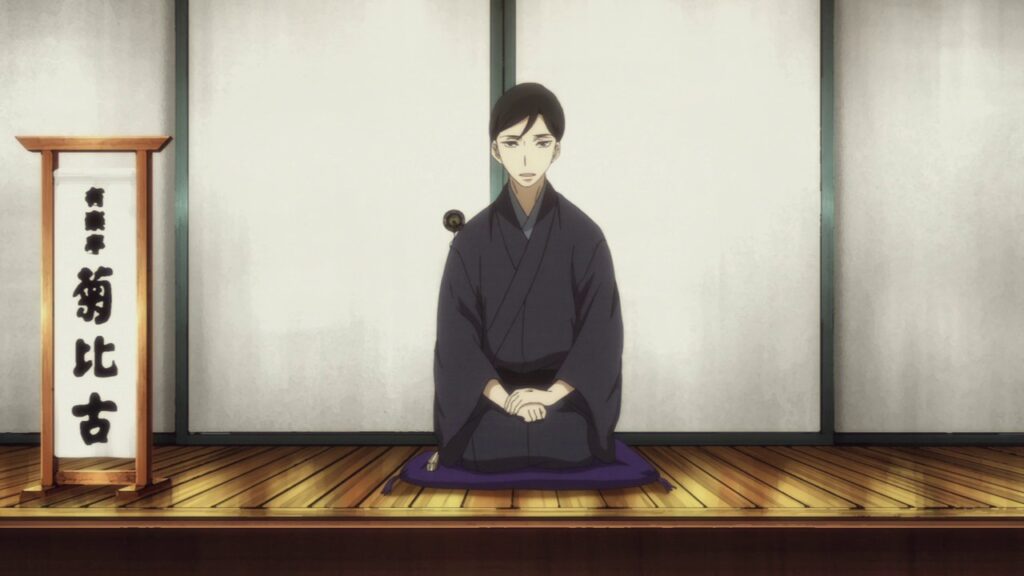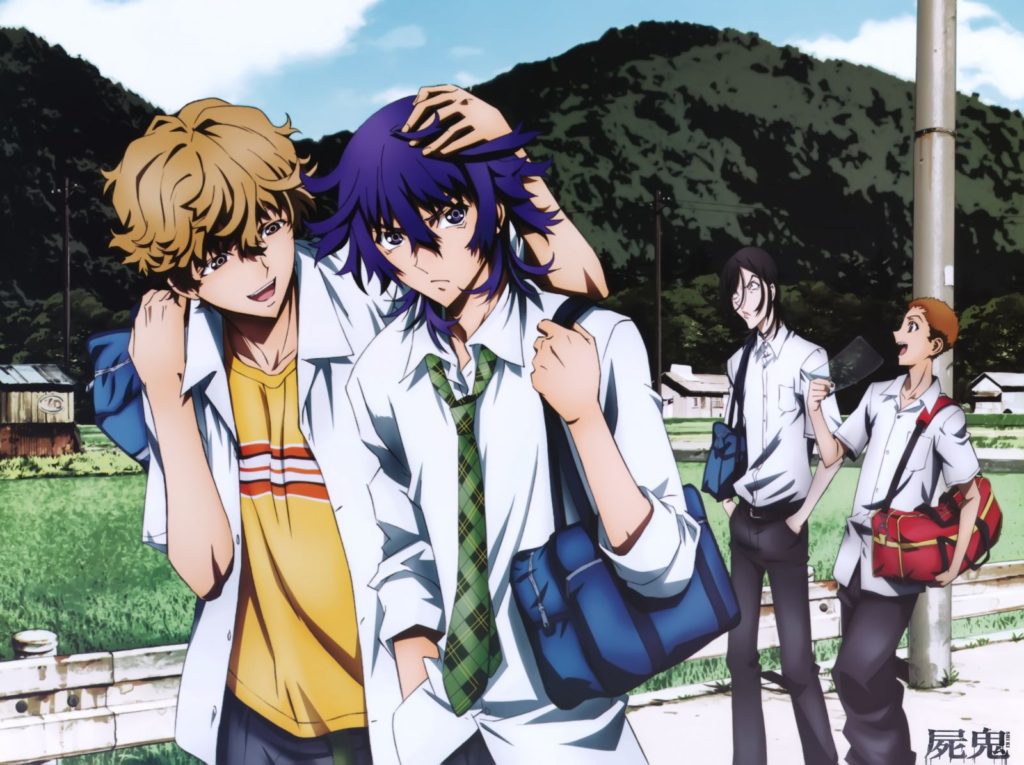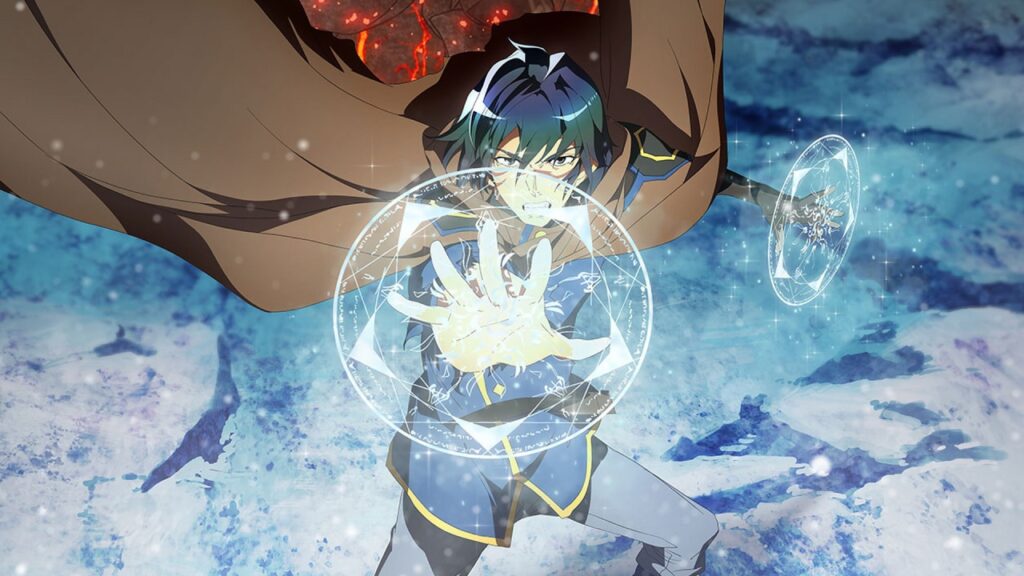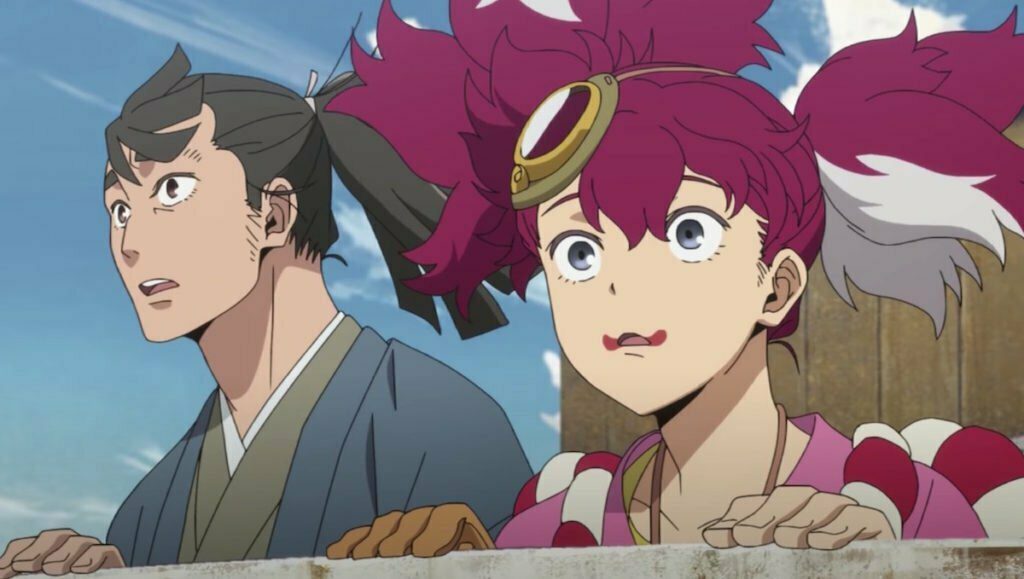Former yakuza member Yotarou is fresh out of prison and looking to keep his nose clean. In order to stay out of trouble, he aspires to the stage of Rakugo, a traditional Japanese form of comedic storytelling.
Inspired by a man he saw perform while incarcerated, he seeks out the man to mentor him, forcing the unwilling, but distinguished Yakumo Yuurakutei to take on his first apprentice.
Rakugo is something uniquely Japanese and not something easily beloved by Westerners or even modern Japanese youth. However, this series is as much a great mature character drama as it is about loving Rakugo. If you are looking for more anime recommendations like Shouwa Genroku Rakugo Shinjuu, head on down below.
Anime Like Shouwa Genroku Rakugo Shinjuu
For Fans of Mature Historical Dramas
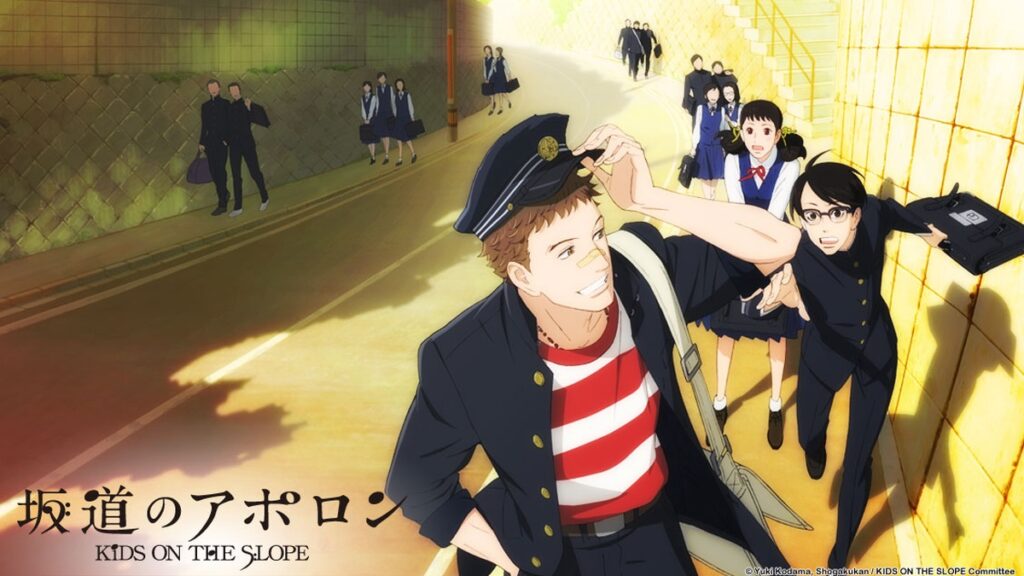
Kids on the Slope
After moving around his entire life, classical pianist Kaoru Nishimi has abandoned all hope of fitting in as he arrives in Kyushu for his final year of high school.
However, that all changes when he meets the thuggish drummer, Sentaro Kawabuchi, a man with an immeasurable love for jazz.
Over the music, they bond together and Kaoru learns that music should be something to bring joy to others, not something dictated by hundreds of years of technique.
While Shouwa Genroku Rakugo Shinjuu has a split story between Yakumo’s past and present, Kids on the Slope takes place in a similar time period to the past section of Shouwa Genroku Rakugo Shinjuu. Both series offer a rare and grounded glimpse at post-War Japan and highlight the unique social issues of the day.
While Shouwa Genroku Rakugo Shinjuu is telling the story of a Rakugo master and his drama-fraught life, Kids of the Slope is telling a realistic coming-of-age story about a high-strung boy bonding with an outcasted troublemaker over their shared love of Jazz. As such, Kids on the Slope is a music anime, but music anime is often the best anime genre to visit if you want great character stories.
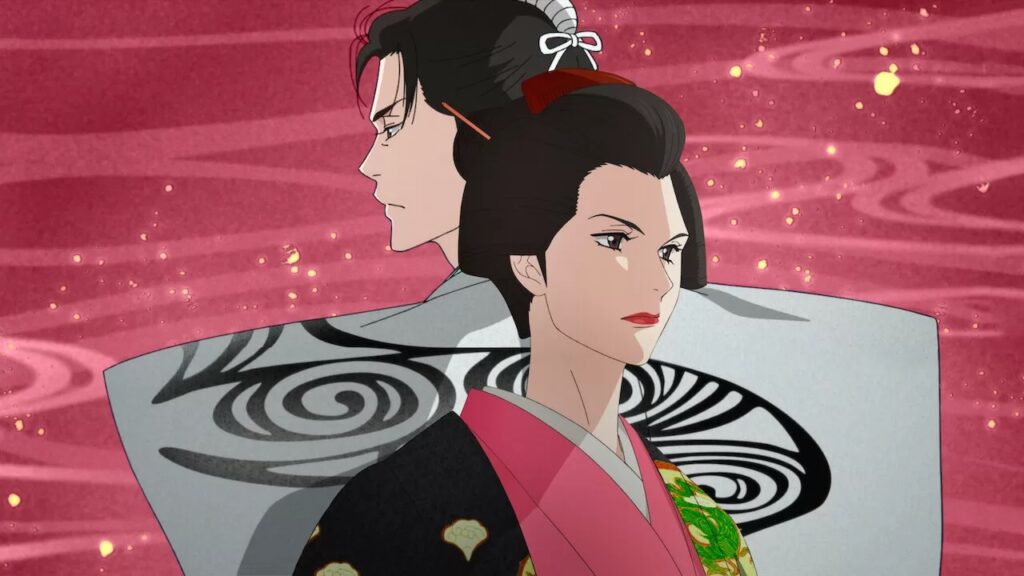
Ooku – The Inner Chamber
In the Edo period of Japan, a strange disease started in the mountains and rapidly spread across the country. This version of small pox, named the Redface Pox, only infected and killed men.
Within the first years of the outbreak, only one-forth of the male population remained, sending the gender roles of Japan into upheaval.
Whereas men once worked the fields and fished the seas, now women take up the role. Whereas businesses were once passed from father to son, now fathers are forced to leave them to their daughters. Now a rarity, men became coveted by women in order to produce children. Having a husband became a status symbol and men often found coin selling their bodies to women in the same way women once did for men.
This is the tale of the first female Shogun after the dawn of the plague who navigated the turbulent times and set the foundation for an Inner Chamber of male concubines that serve as consorts to the Shogunate.
Unlike Shouwa Genroku Rakugo Shinjuu that has a pretty realistic depiction of past Japan, Ooku goes a decidedly different route by featuring an alternate version of Japanese history where most men were killed off by a special strain of smallpox and women took over male roles in society.
While that seems so wildly different from the story Shouwa Genroku Rakugo Shinjuu presents, what these series have in common is they are both mature, interesting historical dramas that feature enthralling, but grounded character stories. Essentially, both anime do well to create characters that are not just one trope, but are complex and complicated.
Furthermore, both Shouwa Genroku Rakugo Shinjuu and Ooku are separated into past and present sections, though as Ooku currently only has the one season, its “present” section is much shorter. The majority of the first season is spent explaining how things got the way they were.
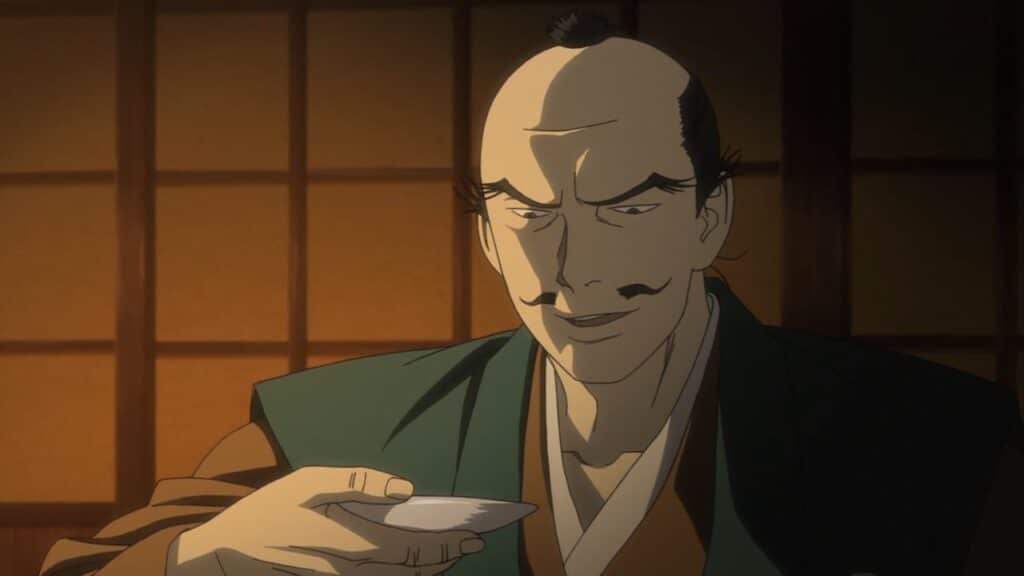
Hyouge Mono
During the Warring States era, one vassal of Oda Nobunaga learned of the art of tea ceremony from Oda himself and the legendary tea master, Sen no Soueki. This vassal, Furuta Sasuke, seeks to lead a fortuitous life and now walks the path of the Hyouge Mono.
To many, they only know samurai as the warrior class of ancient Japan. However, they were not men who solely lived on the battlefield. Hyouge Mono covers the more artistic pursuits of the samurai.
Both Shouwa Genroku Rakugo Shinjuu and Hyouge Mono are period drama anime that are built around men doing traditional Japanese activities. Shouwa Genroku Rakugo Shinjuu is about Rakugo in a period where it is both thriving and waning while Hyouge Mono is about a man passionate about tea ceremony in an age of war.
Both series are low action and are more about the complex characters than any grand battles. However, Hyouge Mono, which is still a drama, does tend to lean more into some eccentricity.
For Fans of Dedication to a Dying Craft
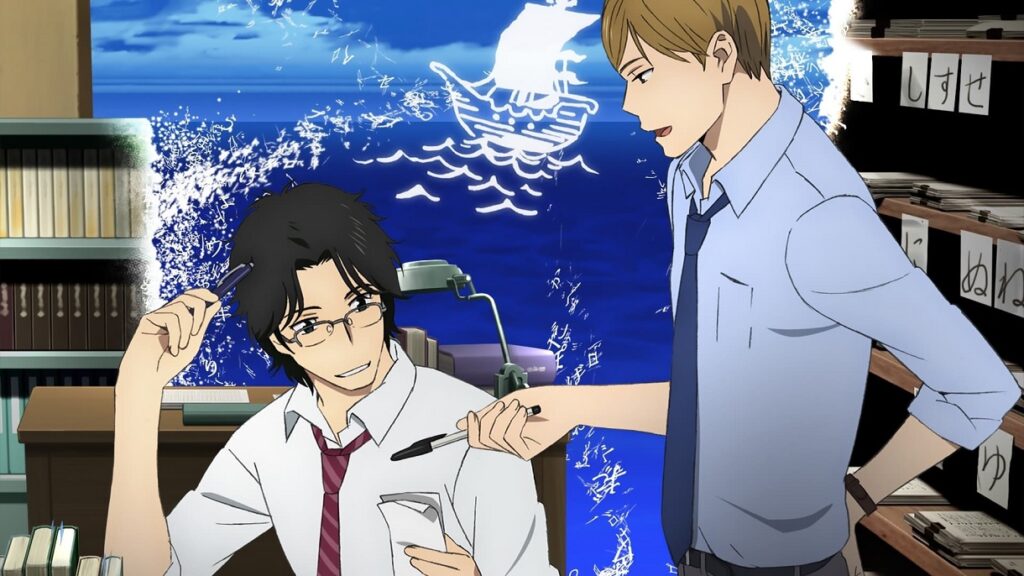
The Great Passage
Araki is a veteran editor of Genbu Publishing’s dictionary division and planning on retiring. However, before he does, he seeks to find a replacement to complete his last project – a dictionary called the Great Passage.
He has since failed, until he meets Mitsuya Majime, a worker in the sales division with poor social skills.
Both Shouwa Genroku Rakugo Shinjuu and The Great Passage are mature character dramas that focus on the aging masters of a dying craft. While Rakugo is the focus in Shouwa Genroku Rakugo Shinjuu, The Great Passage is about making dictionaries. Neither profession was ever too wildly popular, but both had their place at one point in time.
Although The Great Passage is set in a modern age, it is a series very much about the characters, not unlike Shouwa Genroku Rakugo Shinjuu. The profession is merely framing the character stories it is trying to tell.
If you like your anime stories mature and more on the realistic side, you will struggle to find two better drama anime.
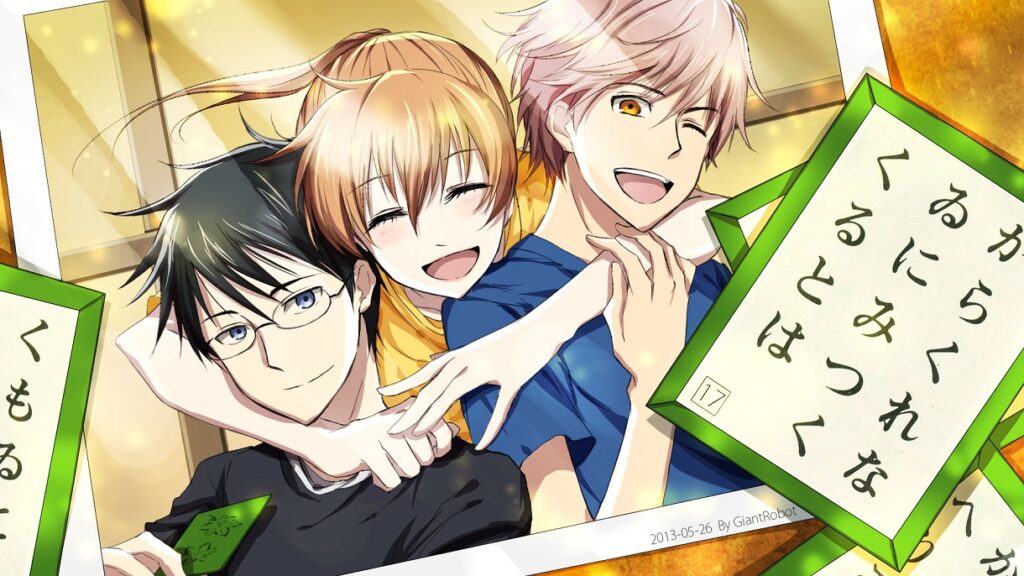
Chihayafuru
Growing up in the shadow of her older sister, Chihaya Ayase is strong-willed and a tomboy with no dreams of her own. However, after learning an outcast in her class, Arata Wataya, has incredible skill at karuta and his huge passion inspires her, she is pulled into the world of the poem-based card game along with her other childhood friend, Taichi Mashima.
While Chihaya grew a passion for karuta with her two childhood friends, they grew distant when they were separated in middle school. Now a high schooler, Chihaya still aims to be the queen of karuta and wants to compete with Arata again to grow her skill.
Both Shouwa Genroku Rakugo Shinjuu and Chihayafuru are about characters with a particular passion for a rather obscure, uniquely Japanese form of entertainment. Unlike Rakugo, Chihayafuru is about Karuta, a game about matching poem verses competitively.
While both series are about traditional Japanese activities, and both anime strongly focus on their lovable and complicated characters, there is one key difference – Chihayafuru is a sports anime. It is a shoujo sports anime, but still an anime based fully around the competitive spirit and climbing the Karuta ladder.
While Chihayafuru still explores its character stories, it has a huge focus on Karuta as a sport. Thankfully, it does the seemingly impossible by making it actually really entertaining to watch.
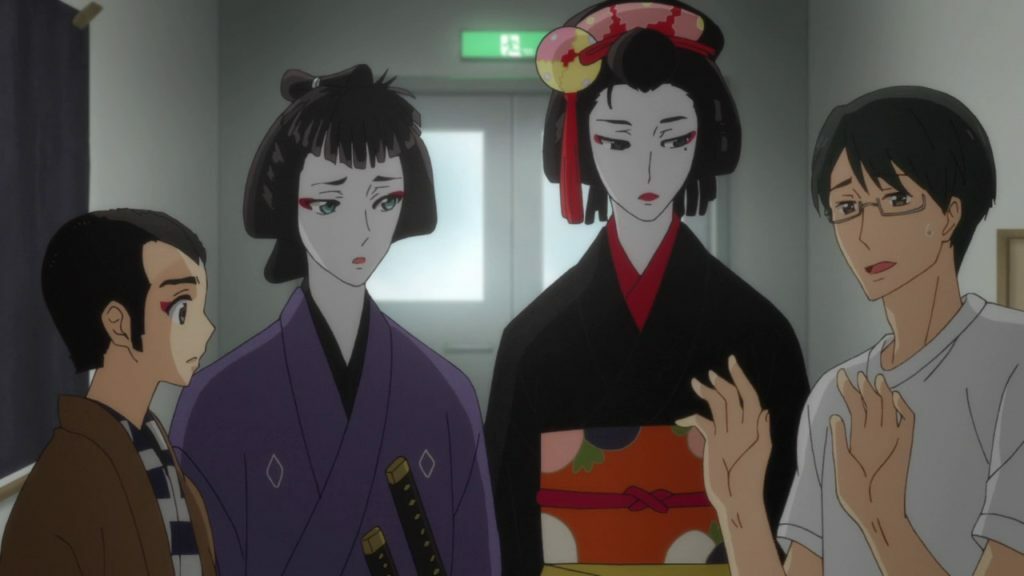
Kabuki-bu
Kurogu had a love of kabuki instilled in him from a young age by his grandfather. Now in high school, he seeks to create a kabuki club to bring an appreciation for it to a wider audience.
However, hundreds of years of strict tradition are harder than these high schoolers expected to deal with, but Kurogu won’t be deterred.
Like Shouwa Genroku Rakugo Shinjuu is about Rakugo and its waning popularity under hundreds of years of strict tradition, Kabuiki-bu is about Kabuki and its waning popularity under hundreds of years of strict tradition.
While both series are about traditional Japanese arts, Kabuki-bu is a modern-set school club anime. It isn’t so nuanced with character drama like Shouwa Genroku Rakugo Shinjuu, but instead chooses to focus on the ways they try to make Kabuki appealing to modern audiences.
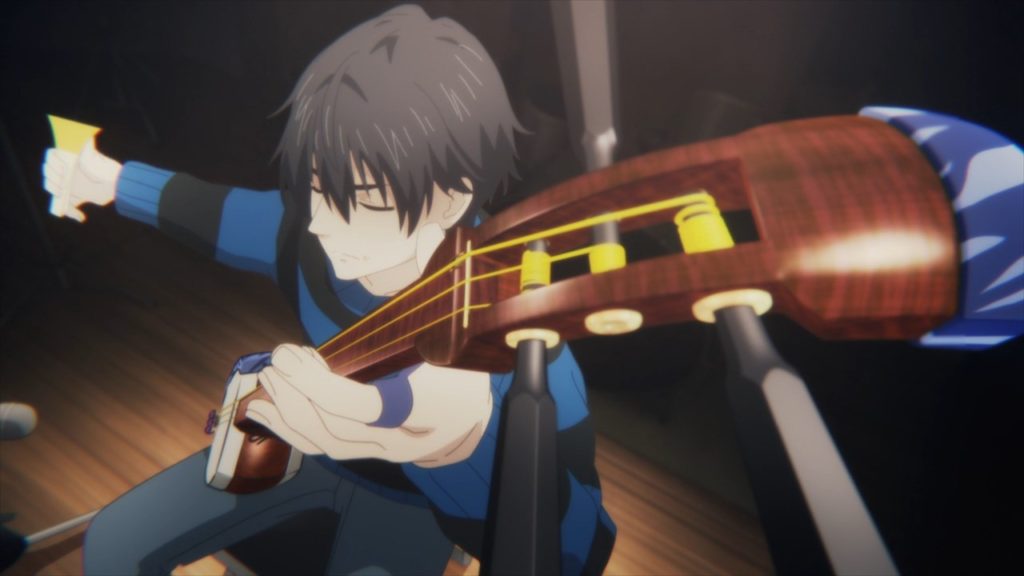
Those Snow White Notes
After watching his grandfather perform the shamisen at a young age, Setsu became entranced. However, after his grandfather’s death, he runs away from his small village and quits playing after his grandfather said he should never play if he was just going to imitate others.
Fleeing to the city, Setsu slowly begins to become inspired to develop his own shamisen style, further aided when his eccentric mother forces him to enroll in the Umezono Academy.
Cultural activities will never die out as long as new passion for it is born. Both Shouwa Genroku Rakugo Shinjuu and Those Snow White Notes are about new people who firmly want to become a master of a traditional Japanese form of entertainment.
Shouwa Genroku Rakugo Shinjuu is about Rakugo while Those Snow White Notes is about playing the shamisen. Both series feature characters that were inspired to take up the activity after hearing an old master perform.
However, while Shouwa Genroku Rakugo Shinjuu has Rakugo done through an apprenticeship, Those Snow White Notes quickly becomes a school-set music anime. Both series provide some good character drama, but Those Snow White Notes is more about ambition and passion than much else.
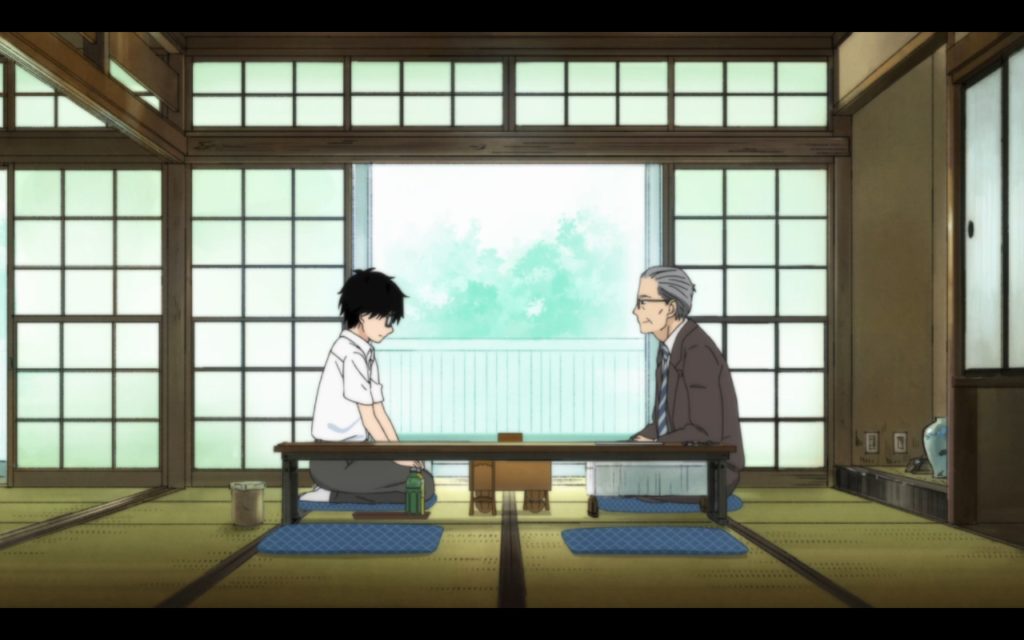
March Comes In Like a Lion
Rei Kiriyama recently started to live alone in his last year of high school. He is able to financial support himself as a professional Shogi player, but while he officially became a pro in middle school, he is collapsing under the pressure to succeed.
Burdened with his own problems, Rei has found solace among a kind family of three sisters, the Kawamotos. The oldest, Akari, likes to take in strays and Rei is the latest.
While he feels conflicted about spending time with them, they provide the accepting affection that he has gotten nowhere else.
Like Shouwa Genroku Rakugo Shinjuu has the story surrounding Rakugo, March Comes In Like a Lion is about a shogi player. While both about traditional Japanese activities of waning modern popularity, these series are more about the characters than the activity.
While Shouwa Genroku Rakugo Shinjuu explores Yakumo’s troubled past and present with Rakugo and his relationships with other, March Comes in Like A Lion explores Rei’s deep depression over his troubled relationship with his foster family, talent at shogi, and isolation from most everyone else.
For Fans of Rakugo
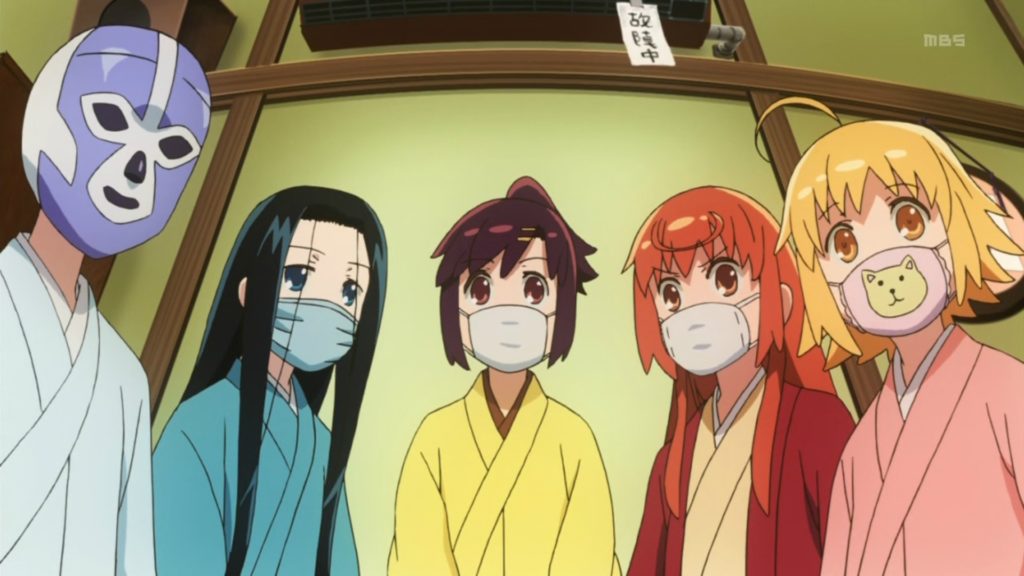
Joshiraku
Back stage at a rakugo theater, five rakugo storyteller girls meet up with each other and regale each other with the odd things that happen to them each day.
With each of the five having a distinct storytelling style, their satirical and comedic chatter covers all aspects of life and the discourse never quite ends in the same place it began.
If you were perhaps captivated by Rakugo as a form of entertainment and not so much the mature character drama in Shouwa Genroku Rakugo Shinjuu, then Joshiraku is likely for you.
This series features a group of school girls who regale each other with stories and satire they observed in their daily lives.
Obviously, these girls are telling original tales, but doing so in a Rakugo form. So you won’t find any crossover stories between Joshiraku and Shouwa Genroku Rakugo Shinjuu.
Joshiraku is a Cute Girls Doing Cute Things comedy anime, which is a much different experience from Shouwa Genroku Rakugo Shinjuu, but both are about Rakugo storytelling.
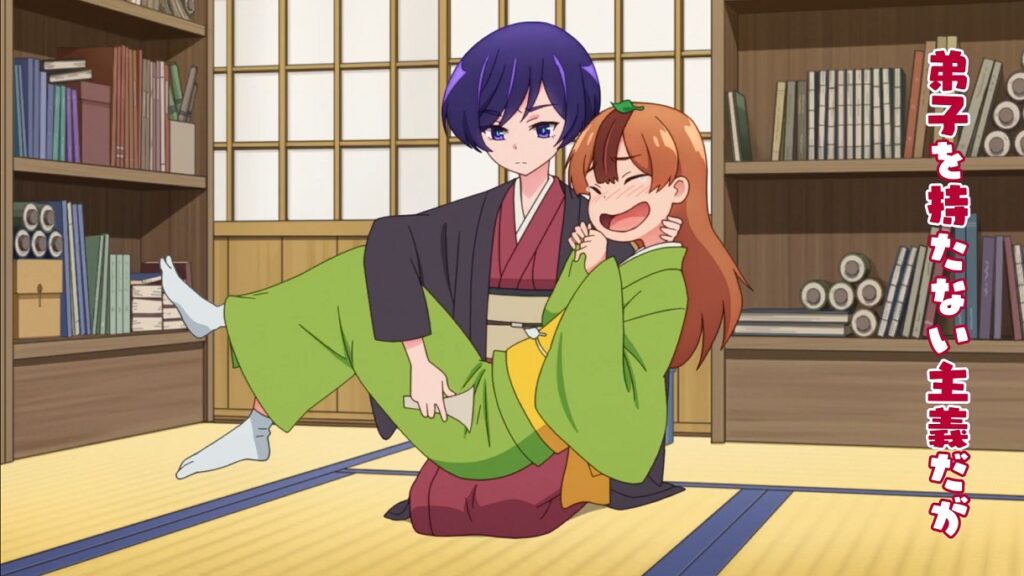
My Master Has No Tail
Tanuki, crafty raccoon dogs that can transform into humans, love fooling humans. However, the dawn of the Taisho Era and the advent of advanced technology meant the tanuki’s tricks worked less and less.
Mameda, a young tanuki, has not quite given up, but after failing to trick even one person and being chased by an angry crowd, she takes refuge in a theater.
There, she hears a rakugo performance given by the master, Bunko Daikokutei. Fascinated by the performance, Mameda begs her to take her on as an apprentice in the art of rakugo.
Like Shouwa Genroku Rakugo Shinjuu is about Yakumo detailing his past with Rakugo to his eager apprentice, My Master Has No Tail is also about a Rakugo master and their new apprentice. However, My Master Has No Tail has a much more supernatural spin. It’s pretty much about a tanuki wanting to do Rakugo.
While both series are set in a historical period and about Rakugo, Shouwa Genroku Rakugo Shinjuu is a more serious historical drama whereas My Master Has No Tail is more of a supernatural slice of life anime.
Do you have more anime recommendations like Shouwa Genroku Rakugo Shinjuu? Let fans know in the comments section below.
